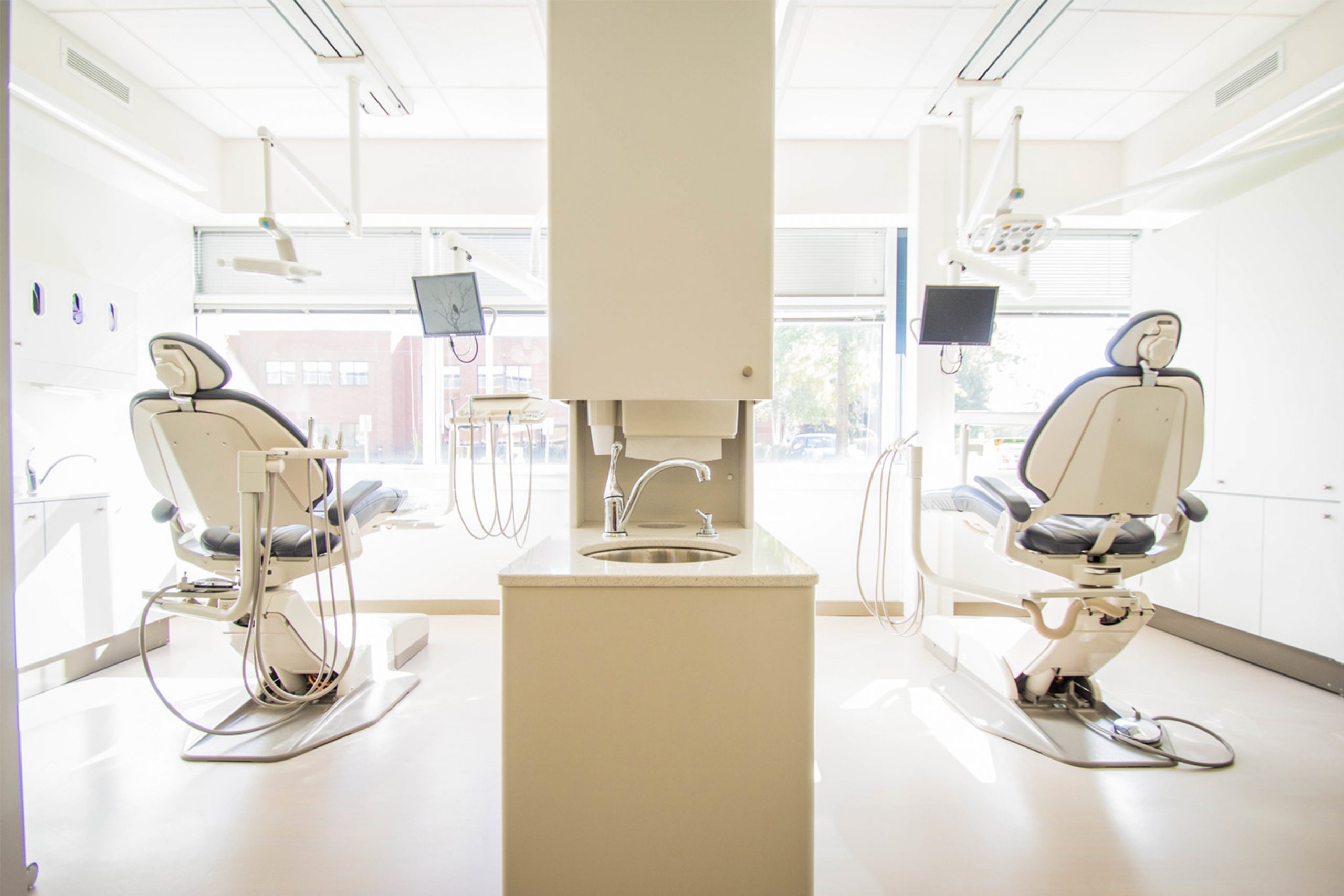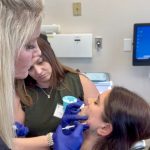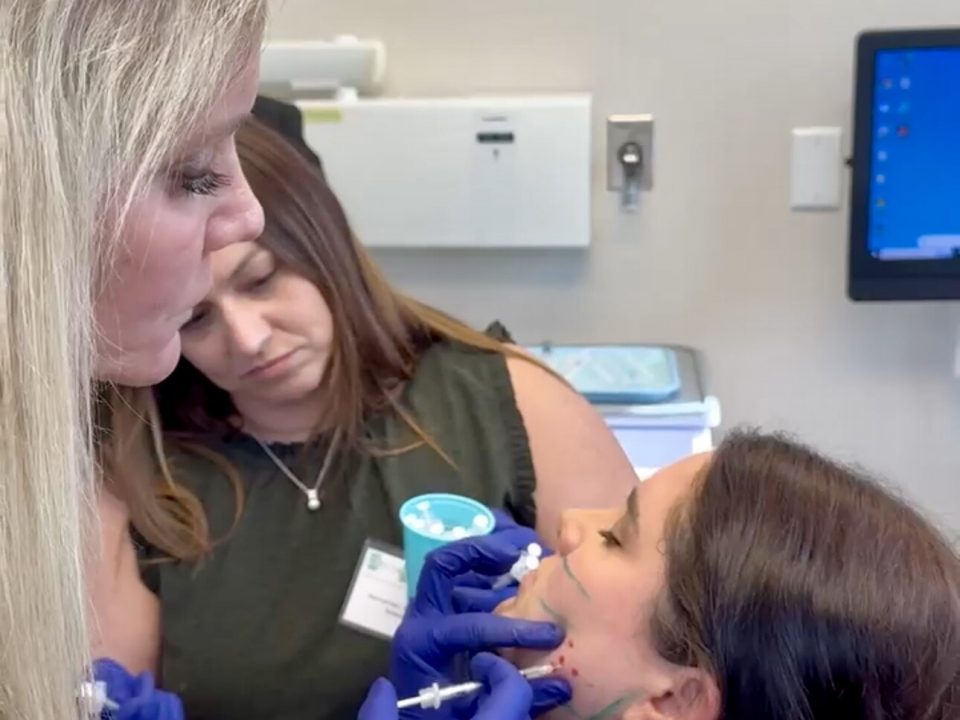
Go with a Dentist or Oral Surgeon for Tooth Extraction?
February 20, 2024
How to Prepare for Botox
February 29, 2024Key Takeaways:
Botox as an Innovative TMJ Treatment:
Botox offers an effective, targeted approach for treating TMJ disorders by targeting muscle dysfunction. By temporarily blocking the release of acetylcholine – a neurotransmitter responsible for muscle contraction – Botox injections effectively induce muscle paralysis or relaxation to alleviate TMJ symptoms like pain and discomfort.
Benefits of Botox Therapy for TMJ Relief:
Botox therapy offers several advantages for individuals suffering from TMJ-related issues, including effective pain reduction, improved jaw function through muscle relaxation and non-surgical treatment options that deliver long-term results. By targeting both pain and function simultaneously, this approach significantly enhances quality of life for those living with chronic TMJ issues.
Considerations and Safety:
Although Botox therapy for TMJ relief is generally safe and well-tolerated, it’s essential to understand potential side effects and risks. Potential adverse reactions could include mild to moderate side effects like injection site bruising or swelling as well as temporary numbness or weakening in muscles injected. It’s essential that prior to beginning Botox therapy you consult a healthcare professional regarding any allergies, medical conditions or medications which could potentially interfere with treatment as this could ensure its suitability with this procedure. Additionally, clinical evidence supports both its efficacy as well as safe use – sustained effectiveness while minimal recovery times observed among many patients undergoing Botox treatments for TMJ relief.
The Efficacy of Botox Therapy for TMJ Relief
Millions of people throughout the world suffer from Temporomandibular Joint Disorder (TMJ), which causes pain, discomfort, and limited jaw movement. While there are several treatment options available, including medication, therapy, and surgery, Botox has emerged as an innovative method for controlling TMJ symptoms. In the following blog, we will look at the usefulness of Botox in treating TMJ problems, including its mechanism of action, benefits, potential side effects, and overall efficacy.
Understanding How TMJ Affects Patients
The temporomandibular joint joins your jaws and skull and is essential for daily actions like eating, talking, and yawning. TMJ disorder refers to a multitude of conditions that affect this joint and its surrounding muscles, resulting in symptoms such as:
- Facial pain and/or headaches
- Making clicking or popping sounds when opening or closing the mouth
- Locking of the jaw joint
- Pain in the chewing muscles
- Jaw stiffness
- Ringing in the ears, hearing loss, or vertigo
- A shift in how the upper and lower teeth fit together
TMJ conditions are complex and multifaceted, with stress being a critical factor in their development and worsening. Stress, which can manifest as increased muscular tension in the jaw and surrounding areas, can be physiologically observed.
Teeth grinding, often known as bruxism, is another common cause linked to TMJ issues. Bruxism is the clenching or grinding of teeth, which occurs frequently during sleep and can put undue strain on the temporomandibular joint and surrounding muscles. This continuous strain can cause inflammation, muscular exhaustion, and TMJ problems.
The Way Botox Works to Treat TMJ Issues
By addressing the underlying muscle dysfunction linked to TMJ problems, Botox—scientifically referred to as botulinum toxin—offers a distinctive method of treating the illness. Botox injections, when given by a licensed healthcare professional, function by momentarily preventing the release of acetylcholine, the neurotransmitter that causes muscles to contract. Botox efficiently causes muscular paralysis or relaxation in the targeted location by blocking the release of acetylcholine.
Botox is carefully injected into specific jaw muscles that are hyperactive or causing jaw stress and dysfunction as part of TMJ treatment. The purpose of these injections is to lessen the excessive force applied to the temporomandibular joint during jaw movement and to decrease muscular hyperactivity. Botox helps reduce pain, discomfort, and other TMJ symptoms brought on by tense muscles by encouraging muscular relaxation.
Benefits of Botox for TMJ
For those who are suffering from TMJ muscle pain, Botox therapy is an appealing treatment choice due to its array of advantages. First off, the capacity of Botox to effectively relieve pain is one of its most noteworthy benefits. Botox injections assist in relieving muscle tension and lessen jaw pain and discomfort linked to TMJ problems by targeting the hyperactive muscles that contribute to TMJ symptoms. When someone has chronic TMJ pain, this pain reduction can significantly enhance their quality of life by making it easier for them to go about their everyday activities.
Also, Botox encourages muscle relaxation in the jaw region, which may enhance the mobility and function of the jaw. Botox injections assist in restoring normal jaw function by causing muscle relaxation, which makes jaw movement smoother and more pleasant.
Effective pain reduction, better jaw function, less invasiveness, non-surgical treatment, and long-lasting results are some of the advantages of Botox for TMJ. For anyone looking for a treatment option for TMJ-related problems, these benefits make Botox therapy a worthwhile investment. It provides a safe, effective, and convenient way to manage this challenging condition.
Potential Side Effects and Considerations
It’s essential to understand the possible risks and concerns of Botox therapy for temporomandibular joint dysfunction (TMJ). Although Botox injections are generally proven safe and well-tolerated, some people may experience mild to moderate adverse effects.
Injection site bruising or swelling is one possible side effect of Botox therapy for the muscles of the TMJ. This typical reaction goes away a few days after the treatment. Although these side effects are often moderate and brief, individuals may occasionally experience temporary weakening or numbness in the muscles that have been injected.
Another thing to consider is the risk of temporary numbness or weakening in the muscles close to the injection sites. While speaking and chewing may become briefly difficult, these effects are usually moderate and go away on their own. However, after therapy, most people find that any weakness or numbness goes away in a few days.
Before starting Botox therapy for TMJ, inform your healthcare practitioner about any allergies, medical conditions, or prescription drugs you use. While Botox is generally safe, certain conditions or drugs may increase the risk of problems or adverse reactions. Your medical professional can answer any questions and determine if you are a suitable candidate for Botox therapy.
Clinical Evidence and Efficacy
Numerous research studies and clinical trials have been conducted to evaluate the effect of Botox injections on TMJ symptoms, offering essential insights into the treatment advantages of this procedure.
Although Botox has temporary effects, with discomfort reduction usually lasting several months, many patients report long-term improvements in their quality of life and jaw function after treatment. This sustained effectiveness highlights Botox’s potential as a therapy option for people with persistent TMJ-related problems.
Clinical data supports the safety of TMJ Botox therapy when used by licensed medical practitioners. Serious adverse events are rare, with minor side effects like bruising or swelling. Most patients can return to regular activities soon after the operation, with minimal discomfort and recovery time.
Schedule a Botox Appointment at Southview Dentistry To Alleviate TMJ Symptoms
If you are looking for a TMJ treatment and want to learn more about the benefits of Botox, we invite you to arrange an appointment at Southview Dentistry. Dr. Kelly has been properly trained in how the jaw functions, which makes her an expert in TMJ disorders. Besides, she will be able to identify the difference between muscle and joint pain.
Our skilled team of professionals is committed to delivering personalized care and new treatment options to help you relieve TMJ pain and enhance your overall quality of life.
At Southview Dentistry, we understand how TMJ pain can affect your daily life, and we are committed to assisting you in achieving long-term comfort with innovative treatment options such as Botox therapy.




